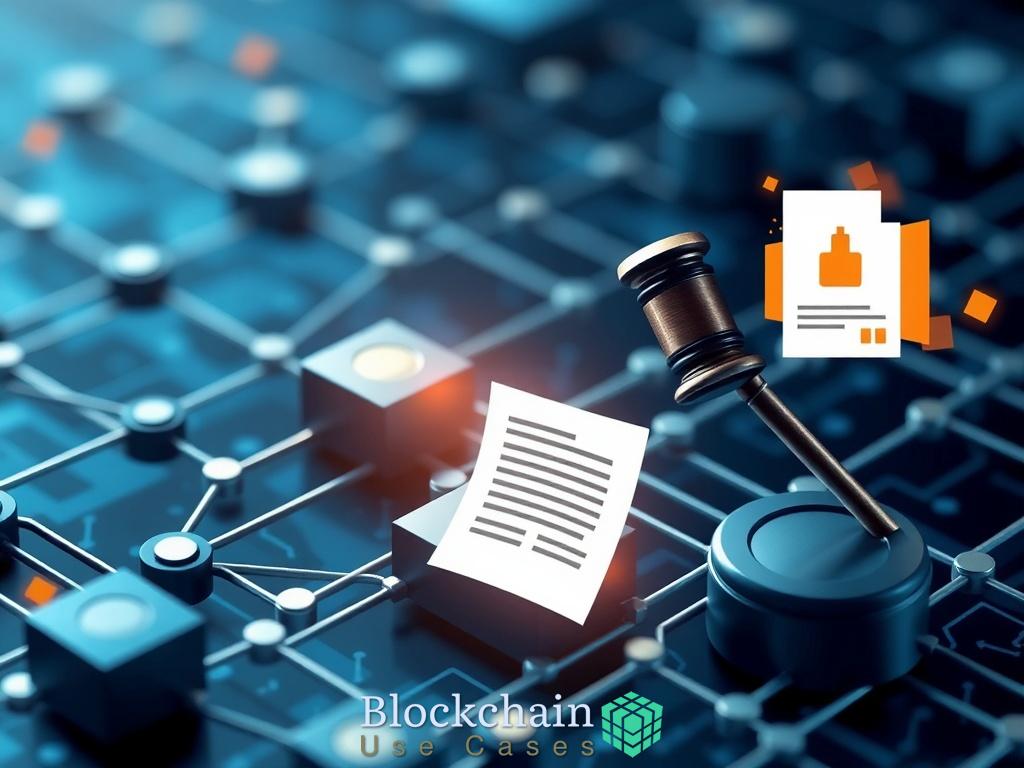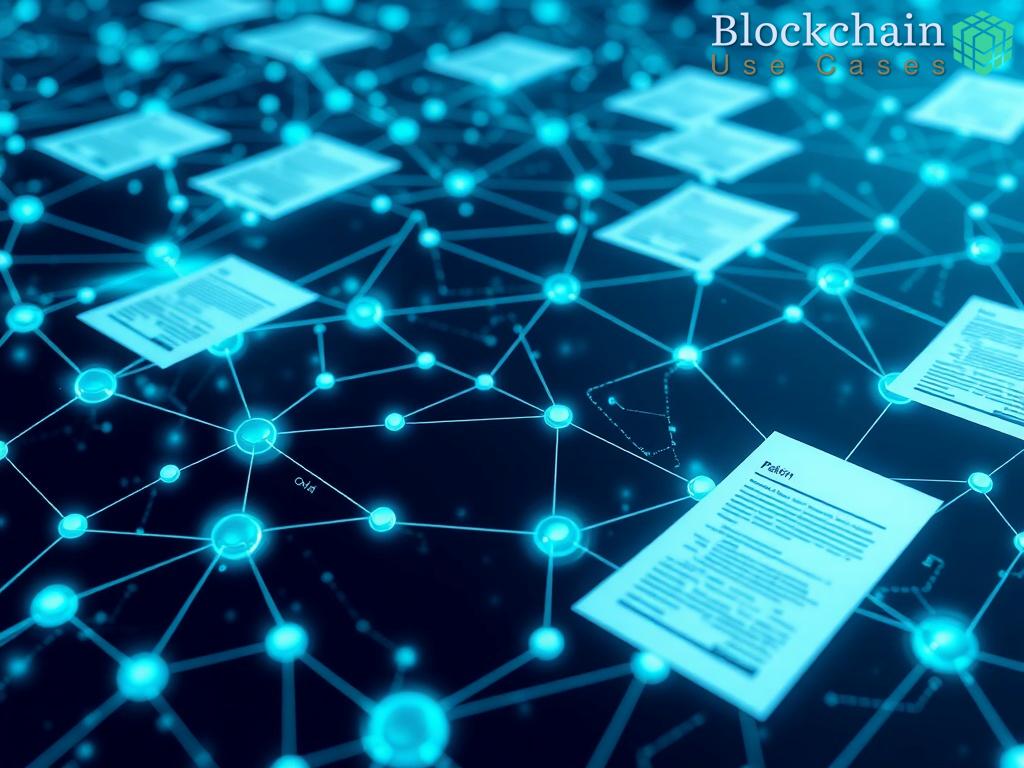Understanding Patent Auctions
In recent years, patent auctions have emerged as a pivotal mechanism for the commercialization and transfer of intellectual property. Traditionally, patent holders faced challenges in efficiently selling or licensing their patents due to a lack of transparency and a structured marketplace. As industries evolve and innovation accelerates, the need for a more streamlined and fair process has become essential. This is where blockchain technology enters the conversation, promising to revolutionize patent auctions by enhancing transparency and trust among participants.
Patent auctions operate as a marketplace where patents are sold to the highest bidder. The process typically involves several critical steps: listing patents, conducting due diligence, bidding, and finalizing the sale. Each step is crucial to ensuring that the auction is fair and that bidders have access to all necessary information. However, the traditional auction process can be marred by issues such as hidden information, bid rigging, and a lack of accountability. Blockchain technology addresses these concerns by offering a decentralized and immutable ledger for all transactions.
- Listing Patents: Patent holders submit their patents to the auction platform, often providing details such as patent status, market potential, and previous licensing agreements.
- Due Diligence: Bidders conduct thorough research on patents, which can be time-consuming and may involve accessing various databases.
- Bidding Process: Bidders place their offers in real-time, with each bid recorded on the blockchain for transparency.
- Finalization: Once the auction closes, the transaction is executed, and ownership is transferred securely through the blockchain.
By integrating blockchain technology into patent auctions, several key benefits can be realized:
| Benefit | Description |
|---|---|
| Transparency | The immutable ledger ensures that all bids and transactions are visible and verifiable, reducing the chances of fraud. |
| Efficiency | Smart contracts can automate many aspects of the auction process, leading to faster transactions and lower costs. |
| Trust | Participants can trust that the auction process is fair, as all actions are recorded transparently on the blockchain. |
As the patent landscape continues to evolve, the integration of blockchain technology into patent auctions represents a transformative shift towards a more transparent, efficient, and trustworthy marketplace.
Blockchain Technology Overview

In the realm of intellectual property, particularly in the context of patent auctions, blockchain technology stands out as a groundbreaking solution. This decentralized ledger system operates on the principle of transparency and immutability, ensuring that every transaction is recorded in a way that is both secure and accessible to all participants. Unlike traditional databases, where a single entity has control over the information, blockchain distributes this authority across a network, dramatically reducing the risks of fraud and manipulation.
At its core, blockchain comprises a series of blocks that are linked and secured using cryptography. Each block contains a set of transactions and is connected to the previous block, forming a chain that cannot be altered without consensus from the network. This design not only enhances security but also fosters a culture of trust among participants, as each action is verifiable and traceable.
The integration of blockchain in patent auctions is not merely an upgrade; it is a revolutionary shift in how intellectual property can be bought and sold. By harnessing the power of smart contracts, blockchain can automate the auction process, ensuring that terms are met before a transaction is completed. This means that bidders can engage with enhanced confidence, knowing that their offers are recorded transparently and that the auction rules are enforced impartially.
Moreover, the ability to perform due diligence becomes significantly streamlined. Bidders can access a complete history of a patent’s transactions and ownership without the usual hurdles associated with traditional databases. This transparency not only saves time but also empowers bidders to make informed decisions, elevating the overall integrity of the auction process. As the landscape of patent transactions continues to evolve, the reliance on blockchain technology is poised to reshape the future of intellectual property dealings.
Enhancing Transparency Through Smart Contracts
In the digital age, the integration of smart contracts into patent auctions represents a significant leap forward in ensuring transparency and accountability. These self-executing contracts with the terms of the agreement directly written into code not only streamline the auction process but also eliminate ambiguities that can often cloud traditional transactions. By leveraging blockchain technology, smart contracts facilitate a seamless transfer of ownership while guaranteeing that all participants adhere to predefined rules.
One of the standout features of smart contracts is their ability to enforce conditions automatically. For instance, in a patent auction scenario, a smart contract can be programmed to execute a sale only when specific criteria are met, such as the highest bid being confirmed. This eliminates the possibility of fraudulent activities or last-minute changes that could undermine the integrity of the auction process. Participants can rest assured that once a bid is placed, it is irrevocable unless the conditions of the contract dictate otherwise.
The transparency provided by smart contracts extends beyond the execution of bids. Each transaction and condition is recorded on the blockchain, creating an unalterable audit trail that all participants can access. This level of visibility fosters a sense of trust among bidders, who can verify not only their own transactions but also the history and legitimacy of the patents being auctioned. Such transparency is pivotal in an environment where intellectual property rights can be intricate and contentious.
Moreover, the implementation of smart contracts in patent auctions significantly reduces administrative burdens. Bidders spend less time navigating complex legal frameworks and can focus on what truly matters: the innovation itself. With automation handling the mundane aspects of the auction, stakeholders can engage in more strategic decision-making, positioning them to capitalize on emerging opportunities.
This innovative approach to patent auctions heralds a new era where transparency is not just an ideal but a practical reality. As the industry continues to adapt to these technological advancements, the role of smart contracts will undoubtedly be paramount in reshaping expectations and outcomes in the realm of intellectual property transactions.
Benefits of Decentralization in Patent Transactions
The advent of blockchain technology has paved the way for a decentralized approach to patent transactions, fundamentally transforming how these processes are conducted. By distributing control across a network rather than relying on a single entity, decentralization introduces a multitude of advantages that enhance both efficiency and trust in patent auctions. This shift not only streamlines operations but also empowers participants by fostering a more equitable environment.
One of the standout features of decentralization in patent transactions is the empowerment it provides to all stakeholders involved. In traditional models, patent transactions often depend on intermediaries, which can lead to increased costs and potential biases. With blockchain, every participant—from patent holders to bidders—gains direct access to a secure, transparent platform. This enables them to engage in transactions without the need for external mediators, thereby reducing costs and facilitating quicker decision-making.
Decentralization significantly enhances the security and accountability of patent transactions. When transactions are recorded on a blockchain, each entry is immutable and traceable, making fraudulent activities far less likely. Participants can verify the history and ownership of patents effortlessly, which is crucial in a landscape often plagued by disputes over intellectual property rights. This level of security not only protects the interests of patent holders but also fosters confidence among bidders, knowing that they are engaging in a legitimate trading environment.
Transparency is inherently built into decentralized systems, and this is especially important in patent auctions where trust is paramount. By allowing all participants to view transaction histories and patent details without interference, blockchain ensures that the auction process operates openly and honestly. This transparency reduces the risk of collusion and manipulative practices, creating a fair playing field where all bids are visible and verifiable. As a result, buyers can place their bids with greater assurance, knowing that they are competing on equal terms.
In conclusion, the benefits of decentralization in patent transactions are profound. By enhancing participant empowerment, increasing security, and fostering transparency, blockchain technology reshapes the dynamics of patent auctions. The shift towards a more equitable and trustworthy system not only attracts more participants but also drives innovation, ultimately benefiting the broader landscape of intellectual property.
Case Studies: Successful Blockchain Implementations
The implementation of blockchain technology in patent auctions is not just theoretical; numerous real-world case studies demonstrate its potential to enhance transparency and efficiency. These pioneering efforts shed light on how blockchain can transform the landscape of intellectual property transactions, providing insights into best practices and emerging trends.
One of the most notable case studies comes from the tech industry, where a major software company utilized a blockchain-based patent auction platform to offload excess intellectual property. By creating a decentralized marketplace, the company eliminated the need for intermediaries, which traditionally complicated the patent transfer process. Bids were recorded in real-time on the blockchain, ensuring that all participants had equal access to information. This transparency not only expedited the sale but also fostered a sense of trust among bidders, as they could verify the legitimacy of each patent and the competitive bidding process.
Another compelling example is found in the pharmaceutical sector, where a consortium of biotech firms launched a blockchain initiative designed to auction patents related to cutting-edge therapies. This initiative specifically targeted the challenges of patent valuation and validation. By leveraging smart contracts, the consortium was able to automate the auction process, ensuring that the highest bidder’s offer was accepted only after the conditions of the auction were met. This approach mitigated the risks of fraud and manipulation, creating a fair environment for all participants. The success of this initiative has sparked interest among other industries looking to replicate its effectiveness.
The outcomes of these blockchain implementations provide critical lessons for future patent auctions. Central to their success is the emphasis on transparency; by ensuring that all auction participants have access to the same information, these projects have demonstrated how blockchain can significantly reduce the opacity that often plagues traditional patent transactions. Furthermore, the ability to audit the entire history of a patent’s ownership and transaction details in real-time has proven invaluable for bidders, allowing them to make informed decisions without the burdens of extensive due diligence.
As these case studies illustrate, blockchain technology is not merely an upgrade to existing patent auction processes but a transformative force that can redefine how intellectual property is bought and sold. By continuing to explore and implement blockchain solutions, stakeholders in the patent ecosystem can look forward to a future characterized by enhanced transparency, increased trust, and a more equitable marketplace.


















